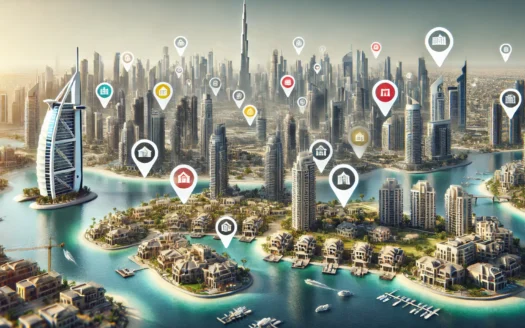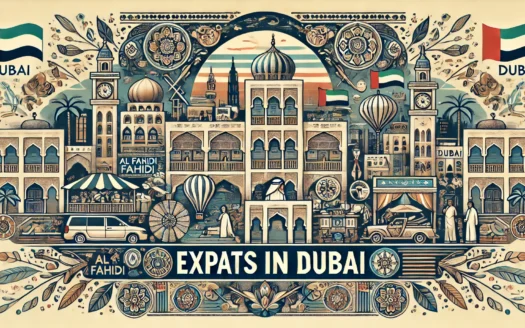Relocating to Dubai: A Step-by-Step Guide for Expats
Moving to a new country can be both exciting and daunting, especially when it’s a vibrant and dynamic city like Dubai. Known for its luxurious lifestyle, cutting-edge architecture, and a booming economy, Dubai attracts expats from all over the world. If you’re considering making the move, this step-by-step guide will help you navigate the process smoothly and ensure a successful transition to your new life in Dubai.
1. Research and Planning
Understand the Culture and Lifestyle
Before making any decisions, it’s crucial to understand Dubai’s culture and lifestyle. Dubai is a melting pot of cultures, but it’s important to respect the local customs and traditions, which are rooted in Islamic values. Familiarize yourself with the dress code, social norms, and legal restrictions to ensure a respectful and enjoyable stay.
Employment Opportunities
Dubai is home to numerous multinational companies and a thriving job market, particularly in sectors like finance, real estate, tourism, and technology. Research the job market in your field and start networking with potential employers. Websites like LinkedIn, GulfTalent, and Bayt can be valuable resources.
2. Visa and Legal Requirements
Work Visa
Securing a work visa is essential for expats moving to Dubai. Typically, your employer will sponsor your visa, so it’s important to have a job offer in place before relocating. The employer will handle most of the paperwork, but you’ll need to provide necessary documents such as your passport, employment contract, and educational certificates.
Residency Visa
Once your work visa is approved, you’ll need to apply for a residency visa. This allows you to live in Dubai legally and access various services like opening a bank account and renting a property. The residency visa process includes a medical examination and obtaining an Emirates ID.
3. Finding Accommodation
Choose the Right Neighborhood
Dubai offers a wide range of residential options, from luxurious villas to high-rise apartments. Popular expat neighborhoods include Dubai Marina, Downtown Dubai, Jumeirah, and Arabian Ranches. Consider factors like proximity to your workplace, schools, and amenities when choosing your new home.
Renting a Property
Most expats in Dubai choose to rent rather than buy property. For the best deals, visit 4Front Realty on Property Finder or explore our offerings directly on our website. Be prepared to pay a security deposit (usually 5% of the annual rent) and provide documents such as your residency visa and Emirates ID. It’s also common to pay rent in one to four cheques throughout the year.
4. Healthcare and Insurance
Health Insurance
Dubai has a high standard of healthcare, with both public and private hospitals offering excellent services. Health insurance is mandatory for all residents, and many employers provide coverage as part of the employment package. If not, you’ll need to arrange your own health insurance to meet the minimum requirements set by the Dubai Health Authority.
5. Education for Children
Schools and Curriculum
Dubai offers a variety of international schools that follow different curriculums such as British, American, Indian, and International Baccalaureate. Research and visit schools to find the best fit for your children. Popular options include Dubai International Academy, GEMS World Academy, and Jumeirah English Speaking School.
6. Financial Management
Opening a Bank Account
Once you have your residency visa, you can open a bank account in Dubai. Major banks include Emirates NBD, Abu Dhabi Commercial Bank, and HSBC. You’ll need to provide documents like your passport, residency visa, Emirates ID, and a letter from your employer.
Cost of Living
The cost of living in Dubai can be high, especially in terms of rent and schooling. However, there are ways to manage expenses, such as shopping at local markets, taking advantage of public transport, and living in less expensive neighborhoods.
7. Transportation
Public Transport
Dubai’s public transport system is efficient and includes the metro, buses, and trams. The Nol card is a convenient way to pay for all public transport. Taxis are also widely available and relatively affordable.
Driving in Dubai
If you plan to drive, you’ll need to obtain a UAE driving license. Depending on your home country, you may be able to convert your existing license, or you may need to take driving lessons and pass a test.
8. Settling In
Social Life and Networking
Dubai offers a vibrant social scene with numerous clubs, events, and activities catering to expats. Joining social groups and professional networks can help you make new friends and ease the transition.
Cultural Adjustment
Adjusting to a new culture can take time. Be open-minded, patient, and willing to learn. Dubai’s expat community is welcoming and supportive, making it easier to adapt to your new environment.
Conclusion
Relocating to Dubai is a significant step, but with thorough research and careful planning, it can be a smooth and rewarding experience. From understanding the visa process to finding the right accommodation and adjusting to a new lifestyle, this guide covers all the essential steps to help you make Dubai your new home. Embrace the adventure and enjoy all that this incredible city has to offer.
Book your dream home with 4Front Realty today and start your new journey in Dubai!
Related Posts
Dubai’s Best Real Estate Deals: How to Spot ...
The Expat Experience: Finding the Perfect Ho...
The Rise of Co-Living Spaces in Dubai
Search



